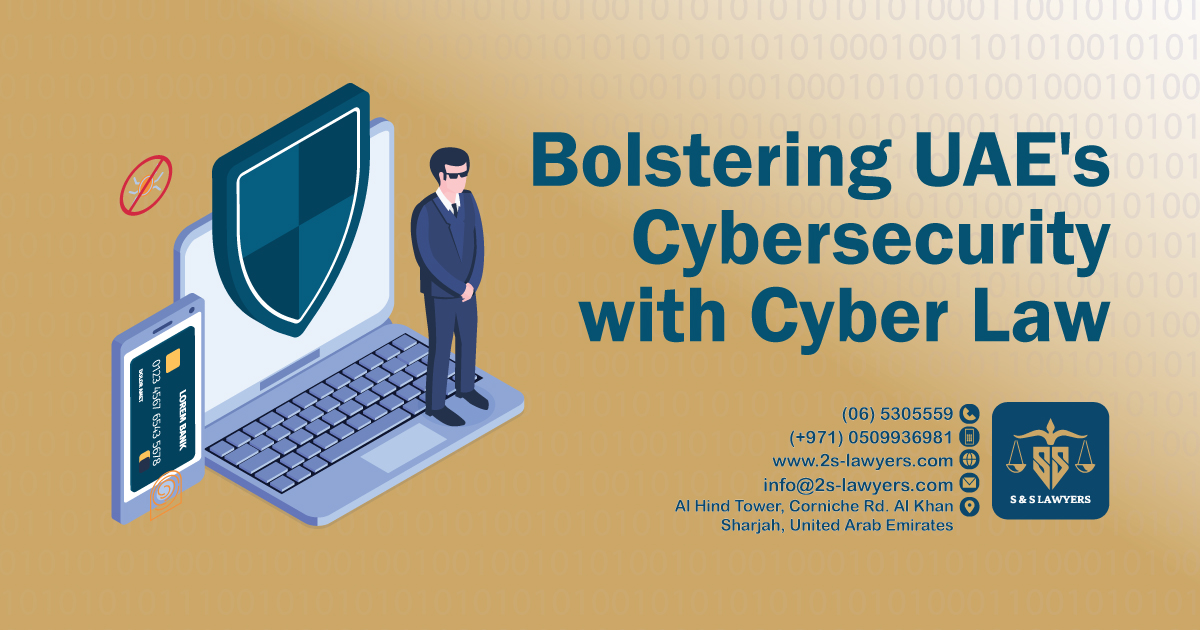Bolstering UAE’s Cybersecurity with Cyber Law
Posted by
webtech

Cybersecurity in the UAE is a massive legal framework that requires a deep understanding of each layer which we will unravel through this article.
Bolstering cybersecurity is an important part of protecting the digital age, especially in UAE that continuously excels in e-commerce and digitization as well as safeguarding against online threats as it becomes evidently paramount. The evolving cyber landscape however is continuously bringing upgrades with the subsequent introduction of the New Cybercrime Law in 2012 which addresses emerging threats comprehensively.
With these continuous amendments to the existing laws, the integrity of digital spaces is safely maintained to ensure a secure online environment as the nation continues to lead in technological advancements.
What is a Cybercrime?
Cybercrime is a criminal activity that either targets or uses a computer, a computer network or a networked device that is typically committed by cybercriminals or hackers who want to make money. Other reasons include simply damaging computers or networks for reasons other than profit which could be either political or personal.
Types of Cybercrimes
⚫️ Soliciting, producing, or possessing child pornography.
⚫️ Illegal gambling.
⚫️ Infringing copyright.
⚫️ Cryptojacking (hackers will mine cryptocurrencies using resources they do not own).
⚫️ Email and Internet fraud.
⚫️ Identity fraud (personal information is used).
⚫️ Theft of financial or card payment data.
⚫️ Theft and sale of corporate data.
⚫️ Ransomware attacks (another type of cyber extortion).
⚫️ Interfering with systems to compromise a network.
⚫️ Selling illegal items online.
Cybercrime is a significant concern worldwide, and the UAE is no exception. And as a rapidly developing country with a strong emphasis on technology and digital infrastructure, the UAE faces various cyber threats ranging from hacking and data breaches to online scams and identity theft.
And the UAE government wants to address these challenges by enacting strict laws and regulations related to cybersecurity and it imposes severe penalties for cyber-related offenses, including fines and imprisonment. They have also established specialized agencies and departments to combat these said cybercrimes. One example is the UAE Cyber Security Council that oversees cybersecurity efforts at the national level while the telecommunications Regulatory Authority (TRA) is responsible for regulating the telecommunications sector and ensuring cybersecurity compliance.
Despite the measures that UAE has been putting on, cybercrime remains a persistent threat. However, the country also continuously invests in enhancing its cybersecurity capabilities which includes collaborating with international organizations, implementing advanced cybersecurity technologies, and raising awareness among businesses and individuals about the importance of cybersecurity hygiene.

UAE Cybercrime Laws Major Elements
⚫️ The law asserts jurisdiction beyond UAE borders for crimes involving the UAE federal government's computer networks or website, illustrating a global perspective.
⚫️ The law emphasizes on the protection of financial data, the laws prohibit illegal access to credit card or bank information, with escalating penalties for different offenses.
⚫️ The law also extends to punish the publication of private information, even if authentic, showcasing the emphasis on individual privacy protection.
Cybercrime Laws Important Provisions
Article 6 - Infringing an individual’s personal electronic data and/or information by for example: acquiring it, possessing it, modifying it, destroying it, revealing it, copying it, disseminating it (without the owner’s consent) is punishable by imprisonment of not less than 6 months and/or a fine of not less than AED 20,000 but not more than AED 100,000.
Article 13 - Collecting, saving, processing personal data and information of UAE nationals and residents of the country in violation of any legislation in force in the UAE will give anyone an imprisonment and/or fine of not less than AED 50,000 but not more than AED 500,000.
Article 45 - Disclosure of confidential information obtained at that person’s work or by virtue of their profession is punishable by law of imprisonment and/or a fine of not less than AED 50,000 but not more than AEd 500,000.
Article 42 - Using information technology to directly extort or threaten another person to force them to do something or to refrain from doing something will lead to anyone getting imprisonment for not more than two years and/or a fine of not less than AED 500,000.
Article 43 - Insulting another person or attribute a quality to them that would make that person subject to punishment or contempt by third parties, be ready to face imprisonment and/or a fine of not less than AED 250,000 but not more than AED 500,000.

